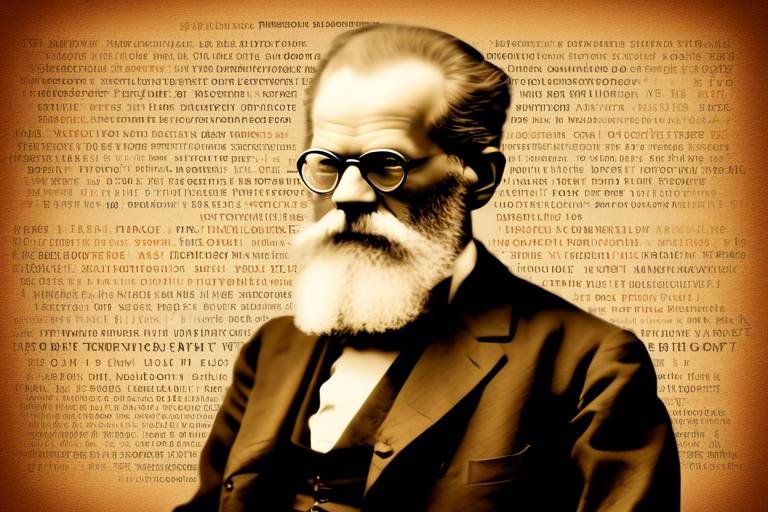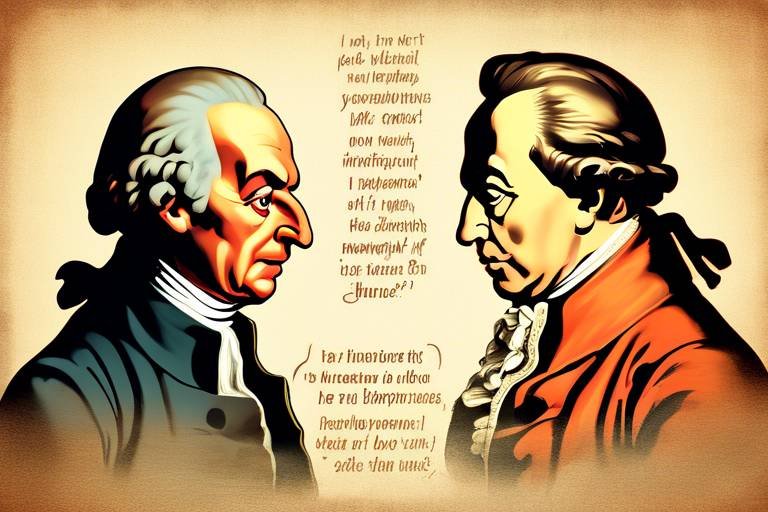The Life and Legacy of Aristotle - The First Scientist?
Aristotle, a name that echoes through the halls of history, is often hailed as one of the most influential thinkers of all time. Born in 384 BC in the ancient Greek city of Stagira, Aristotle's journey into the realms of science and philosophy began early. It was during his formative years that he was introduced to the teachings of Plato, which ignited a flame of curiosity that would burn brightly throughout his life. But what makes Aristotle stand out as the *first scientist*? This article delves into his monumental contributions across various fields, illustrating how his groundbreaking ideas laid the foundation for much of Western thought and continue to resonate in modern science and philosophy.
Aristotle's early life was marked by a thirst for knowledge that was nurtured by his father, Nicomachus, who was a physician. This familial connection to the world of science likely influenced Aristotle's later pursuits. After his father's death, Aristotle moved to Athens at the age of 17 to study at Plato's Academy. Here, he absorbed a wealth of knowledge, not only in philosophy but also in natural sciences, setting the stage for his future explorations. Despite his deep respect for Plato, Aristotle would eventually diverge from his mentor's ideas, forging his own path that would challenge and expand the boundaries of thought.
Aristotle's philosophical inquiries were vast and varied, touching on metaphysics, ethics, politics, and more. He believed that understanding the world required a systematic approach. His works laid down principles that would guide not only philosophers but also scientists for centuries to come. For instance, his exploration of metaphysics delved into the fundamental nature of reality, asking profound questions about existence and the essence of things.
In his quest to understand the universe, Aristotle's metaphysical explorations led him to define key concepts that remain pivotal in philosophical discussions today. He introduced the idea of substance and essence, distinguishing between the two in a way that reshaped philosophical inquiry. Substances, he argued, are individual entities that exist independently, while essences are the properties or characteristics that define those entities. This distinction not only clarified his philosophical stance but also laid groundwork for future metaphysical theories.
Aristotle's distinction between substance and essence can be likened to the difference between a tree and its leaves. The tree exists as a unique entity (substance), while its leaves represent the characteristics that define it (essence). This understanding has influenced countless philosophers, shaping discussions around identity and existence throughout history.
Another cornerstone of Aristotle's metaphysical thought is his theory of causality, encapsulated in the concept of the four causes: material, formal, efficient, and final. This framework provides a comprehensive understanding of change and causation, illustrating that everything in the universe is interconnected. For example, consider a sculptor creating a statue. The material cause is the marble, the formal cause is the design, the efficient cause is the sculptor's work, and the final cause is the purpose of the statue. This multifaceted approach to causality continues to influence both scientific and philosophical thought today.
Aristotle's ethical theories, particularly as articulated in his work Nicomachean Ethics, emphasize the importance of virtue as a mean between extremes. He posited that achieving a fulfilling life requires balancing various aspects of character and moral reasoning. Virtue, in Aristotle's view, is not merely about adhering to rules but about cultivating good habits that lead to a well-lived life. His insights into ethics resonate deeply, encouraging individuals to reflect on their own values and the means by which they pursue happiness.
Beyond philosophy, Aristotle's contributions to science are nothing short of revolutionary. His meticulous observations in fields like biology, physics, and astronomy established him as a pioneer of empirical research. Aristotle's approach to science was not merely theoretical; he emphasized the importance of observation and classification, laying the groundwork for future scientific methodologies.
Aristotle's studies in biology were groundbreaking. He meticulously observed and documented the characteristics of various plants and animals, leading to significant advancements in biological classification. His method of categorizing living organisms based on their features was revolutionary for its time and set a precedent for future biological sciences. For instance, he was one of the first to classify animals based on their habitat, behavior, and anatomy, paving the way for modern taxonomy.
In the realm of physics, Aristotle's theories on motion, force, and the nature of the universe dominated scientific thought for centuries. While some of his ideas were later challenged and refined, they played a crucial role in the development of natural philosophy. His belief that the natural world operates according to certain principles influenced countless scientists and thinkers, shaping the course of scientific inquiry.
Aristotle's legacy is a testament to his profound impact on Western intellectual history. His works continue to be studied and revered, influencing a wide array of disciplines from philosophy and science to literature and politics. The questions he raised and the frameworks he established have inspired generations of thinkers, making him a pivotal figure whose ideas still resonate today. Whether in the classroom, the laboratory, or the realm of ethics, Aristotle's contributions remind us of the enduring power of inquiry and understanding.
- What is Aristotle best known for? Aristotle is best known for his contributions to philosophy and science, particularly in areas like metaphysics, ethics, and biology.
- How did Aristotle influence modern science? Aristotle's emphasis on empirical observation and classification laid the groundwork for the scientific method used in modern research.
- What are the four causes according to Aristotle? The four causes are material, formal, efficient, and final, which explain the reasons behind change and existence.
- Why is Aristotle considered the first scientist? Aristotle is considered the first scientist due to his systematic approach to studying the natural world and his emphasis on observation and classification.

Aristotle's Early Life
Aristotle, often regarded as one of the greatest philosophers of all time, was born in 384 BC in the small town of Stagira, located in northern Greece. His early life was marked by a unique blend of privilege and intellectual stimulation, which played a pivotal role in shaping his future pursuits. Aristotle's father, Nicomachus, was a physician to the king of Macedon, which exposed young Aristotle to the world of science and medicine from a very early age. This familial background not only provided him with a solid education but also sparked his curiosity about the natural world.
At the age of 17, Aristotle moved to Athens to study at the Academy, a prestigious institution founded by Plato. Here, he spent nearly two decades absorbing the teachings of Plato and engaging in rigorous debates with his peers. This period was crucial, as it not only honed his philosophical skills but also allowed him to develop his own ideas, often in contrast to those of his mentor. Aristotle's time at the Academy was a melting pot of ideas, where he learned about various subjects, including mathematics, astronomy, and ethics.
After Plato's death, Aristotle left the Academy and began to explore different avenues of thought. He traveled extensively, visiting places such as Asia Minor and Lesbos, where he conducted empirical studies on biology and natural sciences. These travels were instrumental in shaping his understanding of the world, as he began to observe and classify living organisms, laying the groundwork for his later scientific contributions.
In addition to his academic pursuits, Aristotle's early life was also marked by personal challenges. He faced the loss of his mother at a young age, which likely influenced his views on ethics and human nature. This combination of personal experiences and academic rigor helped him develop a comprehensive worldview that would later influence his philosophical inquiries.
To summarize, Aristotle's early life was characterized by:
- A privileged upbringing in a family of physicians
- Intensive studies at Plato's Academy in Athens
- Extensive travels that enriched his understanding of biology and natural sciences
- Personal challenges that shaped his ethical perspectives
These formative experiences not only laid the foundation for Aristotle's philosophical inquiries but also prepared him for a lifetime of exploration in various fields. His early life was a tapestry of learning, observation, and personal growth that would ultimately lead him to become a foundational figure in Western thought.

Philosophical Foundations
Aristotle's philosophical journey is nothing short of a grand adventure through the realms of thought. His inquiries spanned a multitude of topics, including metaphysics, ethics, and politics. Imagine a vast ocean of ideas where each wave represents a different aspect of human understanding. Aristotle was not just a sailor navigating these waters; he was a cartographer, mapping out the intricate relationships between these concepts. His systematic approach to understanding the world established him as a pivotal figure in Western philosophy, influencing countless thinkers throughout history.
One of the most fascinating aspects of Aristotle's philosophy is his exploration of metaphysics. He delved into questions about existence, reality, and the nature of being. In essence, metaphysics is like the foundation of a grand building; without a solid base, the structure cannot stand. Aristotle's ideas about substance and essence provided a framework for understanding the physical world, allowing future philosophers to build upon his work. This exploration of reality was not just an academic exercise; it was a profound inquiry into what it means to exist.
Aristotle's distinction between substance and essence is particularly noteworthy. He argued that substances are the individual entities we encounter in the world, while essences define their nature. Think of it this way: a tree (the substance) is characterized by its essence, which includes its height, leaf shape, and bark texture. This distinction is crucial because it allows us to understand not just what things are, but also why they are the way they are. It became a cornerstone of his metaphysical theories and influenced later philosophical thought profoundly.
Furthermore, Aristotle's exploration of causality introduced the concept of the four causes: material, formal, efficient, and final. This comprehensive understanding of change and causation is akin to a recipe that explains how a dish comes together. Each cause plays a role in the final product, just as ingredients, preparation, and intention contribute to a meal. This framework remains significant in both philosophy and science today, helping us to unravel the complexities of the world around us.
Moving on to ethics, Aristotle's theories focused on the concept of virtue as a mean between extremes. His work, Nicomachean Ethics, emphasizes the importance of character and moral reasoning in achieving a fulfilling life. He believed that true happiness is found not in fleeting pleasures but in living a life of virtue. This perspective encourages us to strive for balance in our actions and decisions, much like a tightrope walker who must maintain equilibrium to avoid falling.
In summary, Aristotle's philosophical foundations laid the groundwork for a rich tradition of inquiry that continues to resonate today. His systematic approach, coupled with his profound insights into the nature of reality, virtue, and causality, has left an indelible mark on Western thought. As we navigate our own philosophical journeys, we can draw inspiration from Aristotle's legacy, reminding ourselves that the pursuit of knowledge is a lifelong adventure.
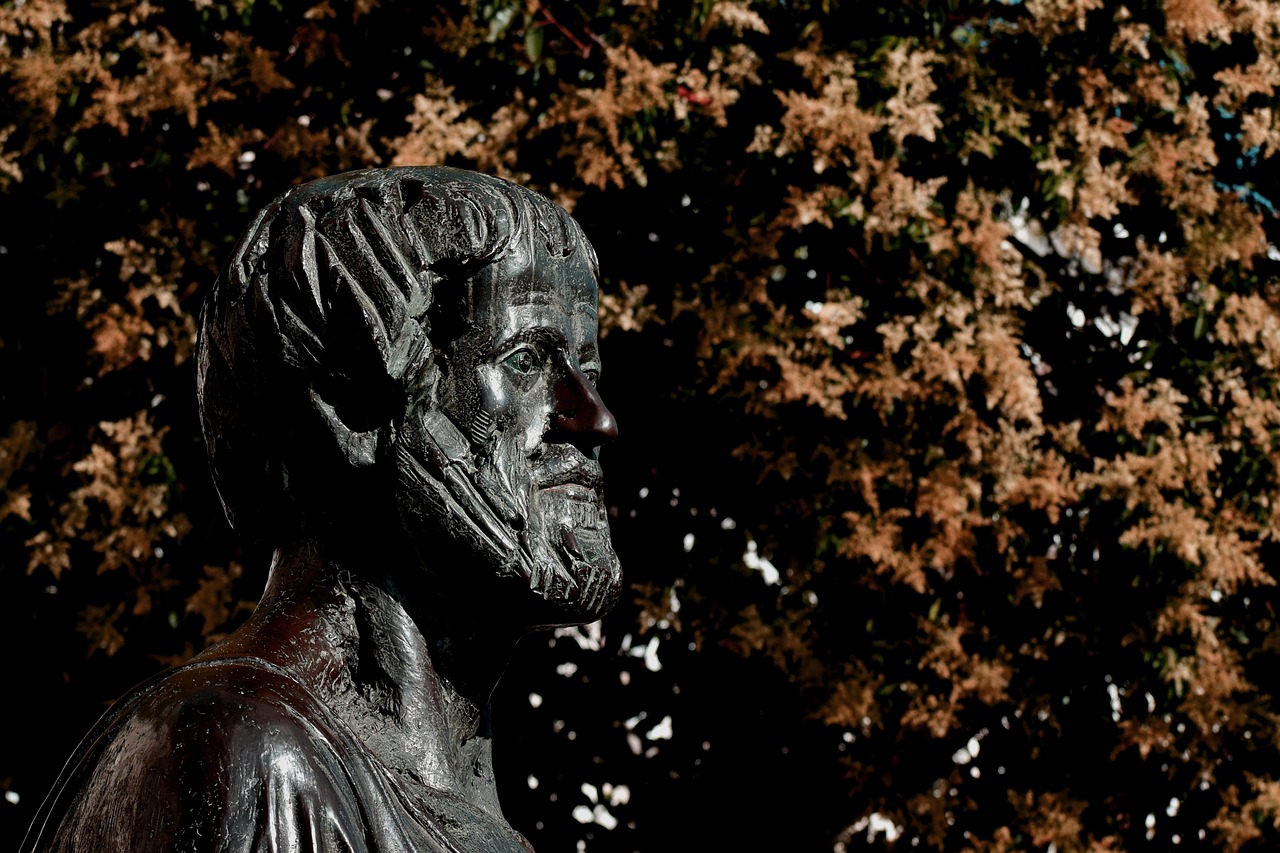
Metaphysics and Reality
Aristotle's exploration of metaphysics is nothing short of revolutionary. He delved into the fundamental nature of existence, asking profound questions about what it means to be. At the heart of his metaphysical inquiries is the distinction between substance and essence. For Aristotle, substances are the individual entities that populate our world, while essences are the intrinsic qualities that define those entities. Imagine a tree; its substance is the tree itself—its trunk, leaves, and roots—while its essence might be its 'treeness'—the qualities that make it a tree rather than a rock or a flower. This distinction is not just philosophical jargon; it forms the backbone of how we understand reality itself.
Aristotle's metaphysics introduces us to a framework that categorizes reality into various levels. He famously posited that everything we perceive is a combination of form and matter. The form is the essence of a thing, its defining characteristics, while the matter is the substance that takes on that form. This relationship becomes crucial when we consider change. How does a seed transform into a towering oak? It is through the interplay of form and matter, where the essence of 'oak-ness' is realized through the material process of growth.
Another cornerstone of Aristotle's metaphysical thought is his theory of causality. He introduced the concept of the four causes, which provide a comprehensive understanding of why things exist and change:
- Material Cause: What something is made of.
- Formal Cause: The form or essence of a thing.
- Efficient Cause: The agent or force that brings something into being.
- Final Cause: The purpose or end for which a thing exists.
This approach to causality allows us to analyze not just the how of existence, but the why. For instance, when we think about a sculpture, the marble (material cause) is shaped into a form (formal cause) by the sculptor (efficient cause) to convey beauty or meaning (final cause). This holistic view of causation influences not only philosophy but also modern scientific inquiry, as it encourages a deeper understanding of the relationships between different phenomena.
In summary, Aristotle's metaphysical framework offers profound insights into reality. By distinguishing between substance and essence, and introducing the four causes, he set the stage for centuries of philosophical thought. His ideas challenge us to look beyond the surface of things, prompting questions about the very nature of existence. Are we merely collections of atoms, or is there something more? Aristotle's work urges us to explore these mysteries, making him a pivotal figure in the journey of human understanding.
- What is the difference between substance and essence?
Substance refers to individual entities, while essence defines the qualities that make those entities what they are. - What are the four causes in Aristotle's philosophy?
The four causes are material, formal, efficient, and final causes, which together explain why things exist and change. - How did Aristotle influence modern science?
His empirical approach and emphasis on observation laid the groundwork for scientific methodologies that continue to be used today.
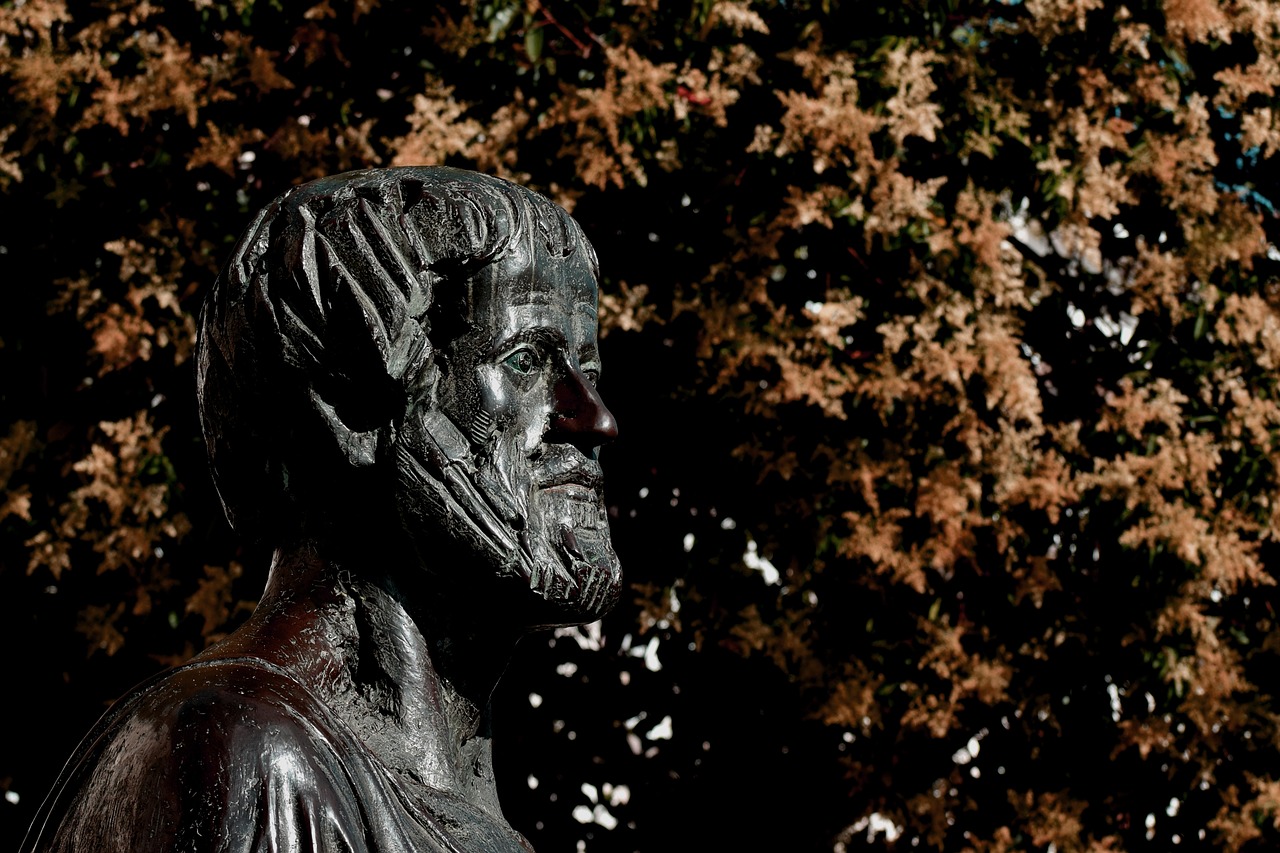
Substance and Essence
Aristotle's distinction between substance and essence is not just a philosophical nuance; it is a fundamental concept that reshaped the way we understand the nature of reality. To grasp this idea, think of a tree. The tree itself, with its trunk, leaves, and roots, represents its substance—the tangible, physical entity that exists in the world. On the other hand, the essence of the tree refers to what it means to be a tree: its characteristics, purpose, and the very qualities that define it as a tree rather than, say, a bush or a flower. This distinction is crucial because it allows us to explore not just what things are, but what they signify in the grand tapestry of existence.
In Aristotle's framework, substances are the individual entities that populate our world, such as animals, plants, and inanimate objects. Each substance has its own unique properties and characteristics that set it apart. For instance, a dog is a substance, and its essence includes traits like being a mammal, having fur, and being capable of loyalty and companionship. This understanding leads us to ask deeper questions about the nature of existence: What does it mean to be? What defines our identity?
Moreover, Aristotle's approach encourages us to consider the relationship between substance and essence in a dynamic way. He argued that while substances can change over time—like a tree growing or a dog aging—their essence remains constant. This idea resonates with many aspects of life, as we often see change as an essential part of growth. For example, a person may change their appearance, beliefs, or experiences throughout their life, but their essence—their core identity—can remain intact.
To illustrate Aristotle's thoughts on substance and essence, consider the following table:
| Aspect | Substance | Essence |
|---|---|---|
| Definition | The individual entities that exist | The defining characteristics of those entities |
| Example | A specific oak tree | The qualities that make it an oak tree (e.g., being a hardwood, producing acorns) |
| Changeability | Substances can change over time | Essences remain constant despite changes in substance |
Aristotle's exploration of substance and essence laid the groundwork for countless debates in philosophy, influencing thinkers from the medieval period to the modern era. His insights challenge us to reflect on our own existence and the essence of the world around us. Are we merely the sum of our parts, or is there a deeper essence that defines us? These questions continue to resonate, making Aristotle's contributions timeless and relevant.
- What is the difference between substance and essence? Substance refers to the individual entities that exist, while essence pertains to the defining characteristics of those entities.
- Why is Aristotle's distinction important? It helps us understand the nature of reality and identity, influencing various fields of thought, including philosophy, science, and ethics.
- How does this concept apply to everyday life? It encourages us to reflect on our identity and the essence of things around us, prompting deeper questions about existence.
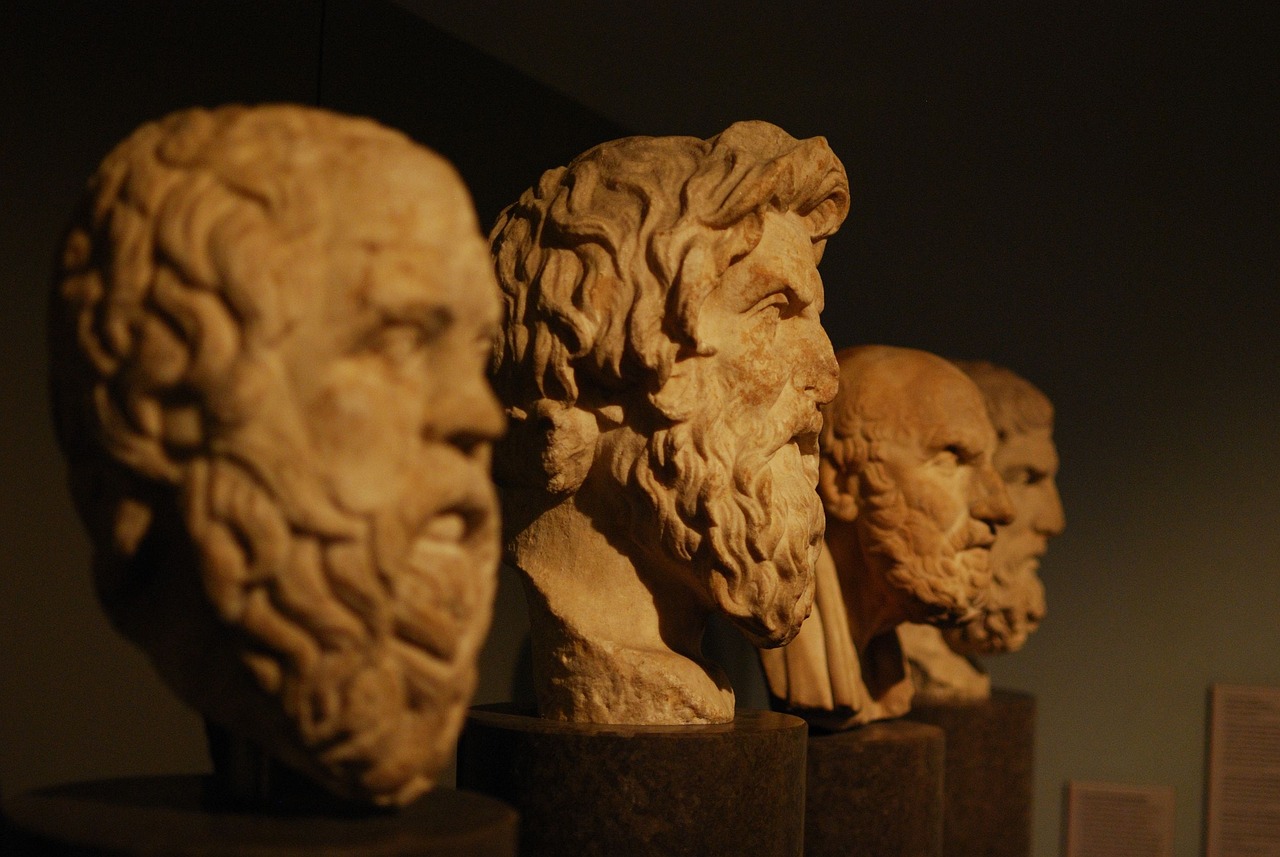
Causality and Change
When we dive into Aristotle's exploration of causality, we encounter a rich tapestry of ideas that not only shaped his own philosophical framework but also laid the groundwork for future scientific inquiry. Aristotle proposed a revolutionary concept known as the four causes, which provides a comprehensive understanding of why things happen and how they change. This framework is not just a dry philosophical theory; it’s a practical tool that helps us navigate the complexities of the world around us.
The four causes are:
- Material Cause: This refers to the substance or matter that makes up an object. For example, the material cause of a wooden table is the wood itself.
- Formal Cause: This is the form or arrangement of the matter. In our wooden table example, the formal cause is the design or blueprint that defines its shape and structure.
- Efficient Cause: This represents the agent or force that brings something into being. In the case of the table, the carpenter who crafted it is the efficient cause.
- Final Cause: This is the purpose or end for which something exists. The final cause of the table might be to provide a surface for dining or working.
By understanding these causes, we gain insights into the intricate web of relationships that define our reality. Imagine trying to fix a broken chair without knowing why it broke; you’d be merely treating the symptoms rather than addressing the root cause. Aristotle’s four causes encourage us to think deeper, urging us to consider not just the what but the why behind every phenomenon.
Furthermore, Aristotle's exploration of change is equally fascinating. He posited that change is not merely about transformation but is deeply rooted in the interaction of these causes. For instance, when a caterpillar transforms into a butterfly, it's not just a superficial change but a profound metamorphosis influenced by its material, formal, efficient, and final causes. This perspective invites us to appreciate the dynamic nature of existence, where every change is a result of complex interdependencies.
In essence, Aristotle’s investigation into causality and change serves as a reminder that our world is not a series of isolated events but a continuous flow of interactions and relationships. His ideas invite us to be curious, to ask questions, and to seek understanding in the chaos of life. As we continue to explore the realms of science and philosophy, Aristotle’s insights remain a guiding light, encouraging us to dig deeper into the nature of reality and our place within it.
- What are Aristotle's four causes? Aristotle's four causes are material, formal, efficient, and final causes, which explain why things exist and how they change.
- Why are Aristotle's ideas about causality important? His ideas help us understand the underlying reasons for changes and phenomena in the world, forming a foundation for both philosophy and science.
- How do Aristotle's concepts of change apply today? Aristotle's framework encourages critical thinking and a deeper inquiry into the relationships and causes behind events, which is relevant in various fields from science to ethics.
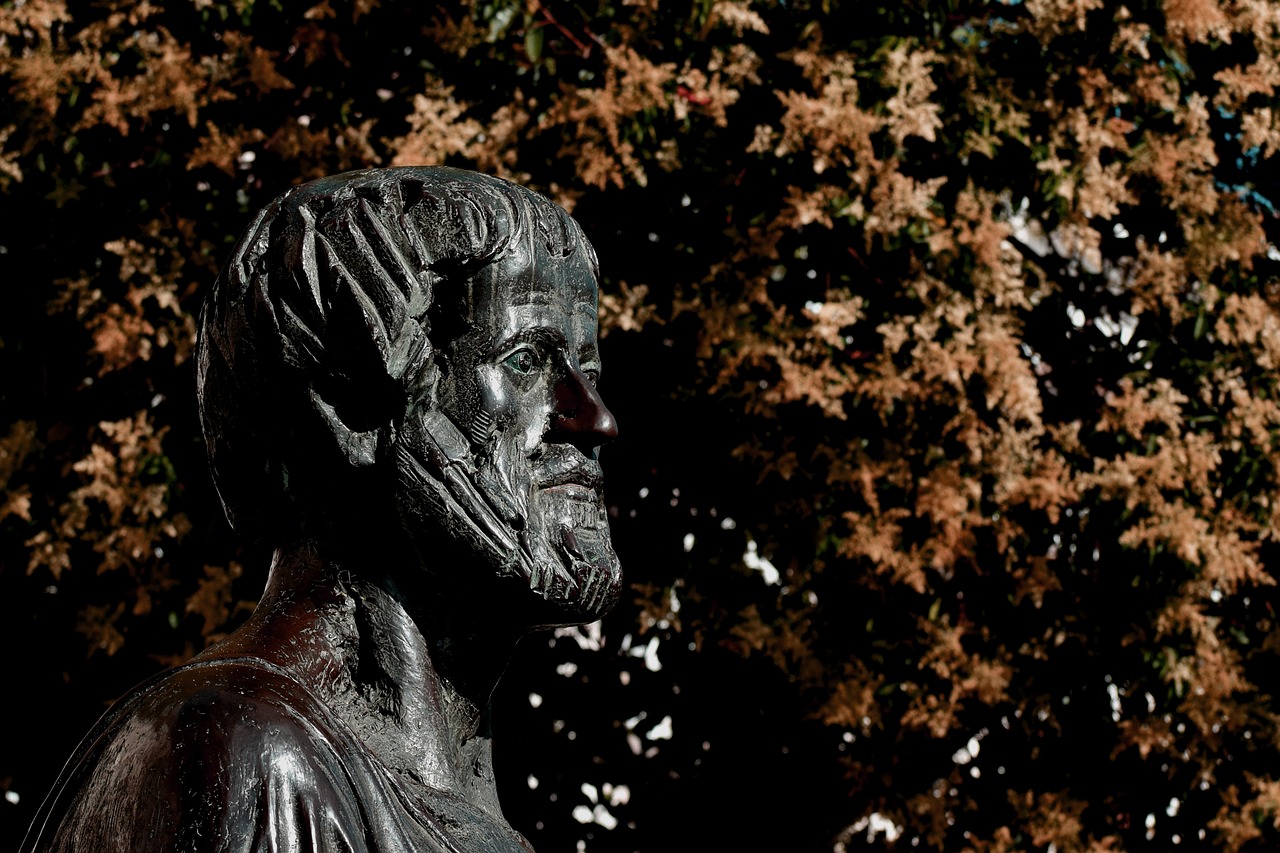
Ethics and Virtue
When we think about ethics, it's easy to imagine a rigid set of rules dictating right from wrong. However, Aristotle took a different approach, emphasizing the idea of virtue as a balance between extremes. This concept is beautifully illustrated in his seminal work, the Nicomachean Ethics, where he explores the nature of a good life and the role of character in ethical decision-making. Aristotle believed that virtue is not merely about following rules but about developing good habits that lead to a fulfilling life.
For Aristotle, virtues are traits that enable individuals to act in accordance with reason. He famously proposed that virtues lie between two vices—one of excess and one of deficiency. For example, consider the virtue of courage. It exists between the extremes of recklessness (excess) and cowardice (deficiency). This idea encourages us to seek a balanced approach in our actions and decisions, promoting a life of moderation and rationality.
Aristotle categorized virtues into two main types: moral virtues and intellectual virtues. Moral virtues, such as courage and temperance, are developed through practice and habit. On the other hand, intellectual virtues, such as wisdom and understanding, arise from teaching and learning. This distinction is vital because it highlights that while we can cultivate moral virtues through our actions, intellectual virtues require a different kind of engagement with knowledge.
To better understand Aristotle's ethical framework, consider the following table that summarizes the key virtues and their corresponding vices:
| Virtue | Excess | Deficiency |
|---|---|---|
| Courage | Recklessness | Cowardice |
| Temperance | Self-Indulgence | Insensibility |
| Generosity | Prodigality | Stinginess |
| Truthfulness | Boastfulness | Self-Deprecation |
Aristotle's emphasis on virtue ethics leads us to ask a crucial question: How do we cultivate these virtues in our daily lives? It starts with self-awareness and a commitment to personal growth. By reflecting on our actions and striving for balance, we can work towards becoming better individuals. Aristotle believed that the ultimate goal of human life is to achieve eudaimonia, often translated as "flourishing" or "well-being." This state is attained through the practice of virtue, leading to a life filled with purpose and fulfillment.
In conclusion, Aristotle's exploration of ethics and virtue offers profound insights into how we can live a meaningful life. By understanding the balance between extremes and actively cultivating virtues, we can navigate the complexities of moral decision-making and strive for a life of excellence.
- What is the main idea of Aristotle's ethics? Aristotle's ethics revolves around the concept of virtue as a mean between extremes, emphasizing the importance of character and moral reasoning.
- How can we apply Aristotle's virtue ethics today? We can apply Aristotle's virtue ethics by reflecting on our actions, striving for balance in our behaviors, and focusing on personal growth.
- What are moral and intellectual virtues? Moral virtues are developed through practice and habit, while intellectual virtues arise from teaching and learning.
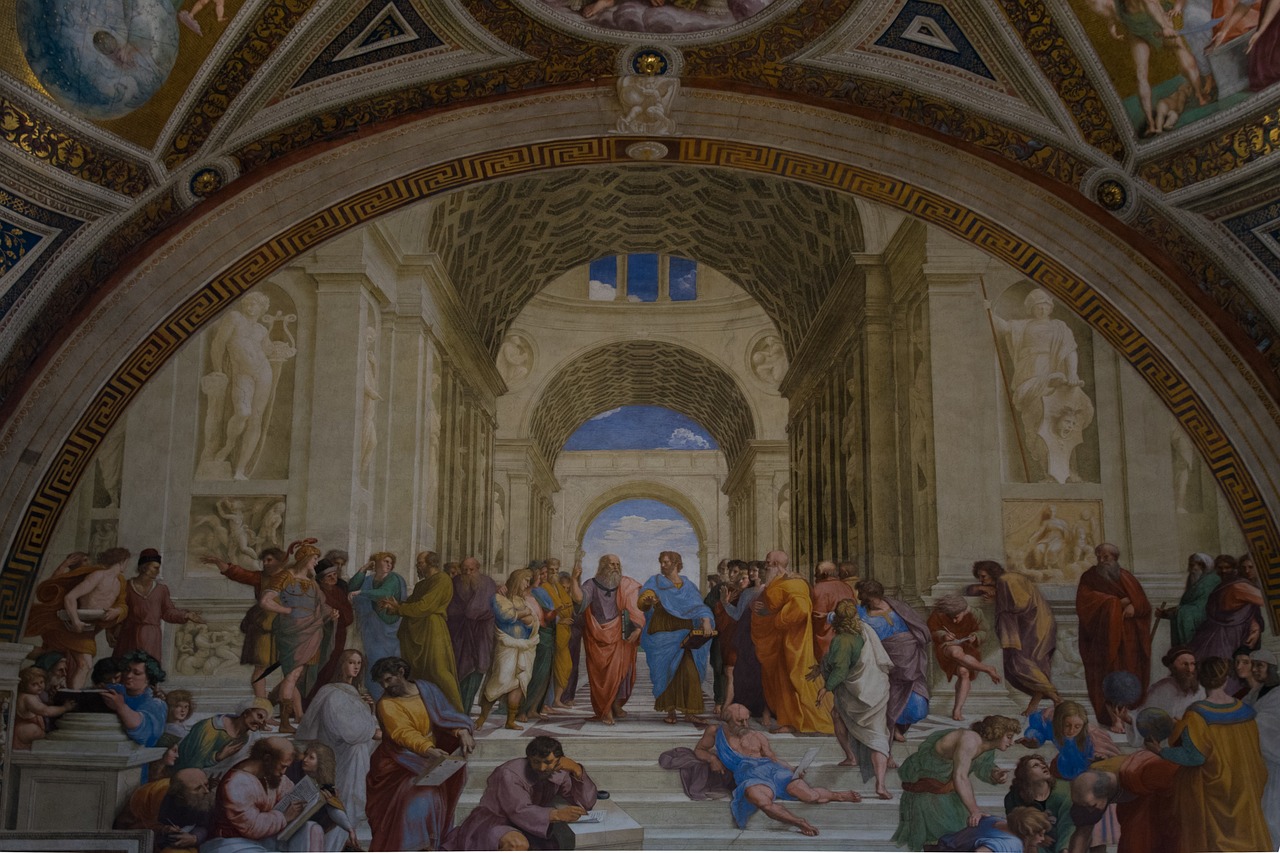
Nicomachean Ethics
This article explores Aristotle's contributions to science, philosophy, and various fields, examining how his ideas shaped the foundation of Western thought and continue to influence modern science and philosophy.
Aristotle's formative years played a crucial role in shaping his intellectual pursuits. Born in 384 BC in Stagira, his education under Plato laid the groundwork for his later philosophical inquiries and scientific explorations.
Aristotle's philosophy encompassed a wide range of topics, including metaphysics, ethics, and politics. His systematic approach to understanding the world established him as a pivotal figure in Western philosophy and influenced countless thinkers throughout history.
Aristotle's work in metaphysics delved into the nature of existence and reality. His concepts of substance and essence provided a framework for understanding the physical world and laid the groundwork for future philosophical inquiry.
Aristotle distinguished between substance and essence, arguing that substances are individual entities while essences define their nature. This distinction became a cornerstone of his metaphysical theories and influenced later philosophical thought.
In his exploration of causality, Aristotle introduced the four causes—material, formal, efficient, and final. This comprehensive understanding of change and causation remains significant in both philosophy and science today.
Aristotle's ethical theories focused on the concept of virtue as a mean between extremes. His work Nicomachean Ethics emphasizes the importance of character and moral reasoning in achieving a fulfilling life.
is one of Aristotle's most significant works, exploring the nature of ethical virtue and the path to a good life. In this text, Aristotle posits that virtue lies in moderation, advocating for a balanced approach to life. He famously articulates the idea of the "Golden Mean," which suggests that moral virtue is achieved by maintaining a balance between deficiency and excess. For instance, courage is a virtue that lies between the extremes of recklessness and cowardice.
Aristotle also emphasizes the role of practical wisdom (phronesis) in ethical decision-making. He argues that it is not enough to know what is good; one must also possess the wisdom to act accordingly. This practical aspect of ethics makes Aristotle's approach highly relevant even today, as it encourages individuals to cultivate their character and make informed choices.
In addition to discussing virtue, Aristotle explores the concept of happiness (eudaimonia) as the ultimate goal of human life. He argues that true happiness is achieved through virtuous living and fulfilling one's potential. This holistic view of ethics emphasizes the interconnectedness of personal development, community involvement, and the pursuit of knowledge.
To better understand the principles outlined in Nicomachean Ethics, consider the following table that summarizes key concepts:
| Concept | Description |
|---|---|
| Virtue | A trait of character manifested in habitual action that lies between deficiency and excess. |
| Golden Mean | The desirable middle ground between two extremes in moral behavior. |
| Practical Wisdom (Phronesis) | The ability to make sound decisions based on ethical considerations. |
| Eudaimonia | The ultimate goal of human life, achieved through virtuous living. |
Aristotle's contributions to various scientific fields, including biology, physics, and astronomy, established him as a pioneer in empirical observation and classification, laying the groundwork for future scientific methodologies.
Aristotle's meticulous observations of animals and plants led to significant advancements in biology. His classification of living organisms and emphasis on empirical research set a precedent for future biological sciences.
In physics, Aristotle's theories on motion, force, and the nature of the universe influenced scientific thought for centuries. His ideas, though later challenged, contributed to the development of natural philosophy.
Aristotle's enduring legacy is evident in various fields, from philosophy and science to literature and politics. His works continue to be studied and revered, showcasing his profound impact on Western intellectual history.
- What is the main idea of Nicomachean Ethics?
Aristotle's main idea in Nicomachean Ethics is that virtue is a mean between extremes, and true happiness is achieved through virtuous living.
- How does Aristotle define happiness?
Aristotle defines happiness (eudaimonia) as the ultimate goal of human life, which is attained through the practice of virtue and fulfilling one's potential.
- What is the Golden Mean?
The Golden Mean is Aristotle's concept that moral virtue lies between two extremes, advocating for balance in ethical behavior.

emphasizes the importance of character and moral reasoning in achieving a fulfilling life.
This article explores Aristotle's contributions to science, philosophy, and various fields, examining how his ideas shaped the foundation of Western thought and continue to influence modern science and philosophy.
Aristotle's formative years played a crucial role in shaping his intellectual pursuits. Born in 384 BC in Stagira, his education under Plato laid the groundwork for his later philosophical inquiries and scientific explorations.
Aristotle's philosophy encompassed a wide range of topics, including metaphysics, ethics, and politics. His systematic approach to understanding the world established him as a pivotal figure in Western philosophy and influenced countless thinkers throughout history.
Aristotle's work in metaphysics delved into the nature of existence and reality. His concepts of substance and essence provided a framework for understanding the physical world and laid the groundwork for future philosophical inquiry.
Aristotle distinguished between substance and essence, arguing that substances are individual entities while essences define their nature. This distinction became a cornerstone of his metaphysical theories and influenced later philosophical thought.
In his exploration of causality, Aristotle introduced the four causes—material, formal, efficient, and final. This comprehensive understanding of change and causation remains significant in both philosophy and science today.
Aristotle's ethical theories focused on the concept of virtue as a mean between extremes. His work Nicomachean Ethics emphasizes the importance of character and moral reasoning in achieving a fulfilling life.
According to Aristotle, the journey to a fulfilling life is intricately tied to our character and the moral choices we make. He believed that living virtuously is not just about following rules; it's about developing a strong character that guides our decisions. Imagine a compass that always points you in the right direction—this is what a virtuous character does for us. It helps us navigate the complexities of life, ensuring that our actions align with our values.
Aristotle argued that virtue lies in finding the balance between extremes. For instance, courage is the mean between recklessness and cowardice. This idea can be likened to walking a tightrope; too much weight on one side, and you risk falling. In this way, moral reasoning becomes essential. It’s not just about knowing what’s right or wrong; it’s about understanding how to apply that knowledge in real-life situations.
Moreover, Aristotle emphasized the role of community in shaping our character. Our interactions with others provide us with opportunities to practice virtue. By engaging in meaningful relationships and participating in society, we cultivate our moral reasoning and, ultimately, our character. This means that achieving a fulfilling life isn’t a solitary journey; it’s a communal one, where we learn from each other’s experiences and perspectives.
In conclusion, Aristotle’s perspective on ethics teaches us that a fulfilling life is a tapestry woven from our character and moral reasoning. It’s a continuous effort to strive for the mean, to engage with our community, and to make choices that reflect our values. By doing so, we not only enhance our own lives but also contribute positively to the world around us.
Aristotle's contributions to various scientific fields, including biology, physics, and astronomy, established him as a pioneer in empirical observation and classification, laying the groundwork for future scientific methodologies.
Aristotle's meticulous observations of animals and plants led to significant advancements in biology. His classification of living organisms and emphasis on empirical research set a precedent for future biological sciences.
In physics, Aristotle's theories on motion, force, and the nature of the universe influenced scientific thought for centuries. His ideas, though later challenged, contributed to the development of natural philosophy.
Aristotle's enduring legacy is evident in various fields, from philosophy and science to literature and politics. His works continue to be studied and revered, showcasing his profound impact on Western intellectual history.
- What are Aristotle's main contributions to philosophy? Aristotle contributed significantly to various branches of philosophy, including metaphysics, ethics, and logic, laying the foundation for Western philosophical thought.
- How did Aristotle influence modern science? Aristotle's empirical approach and classification of living organisms set the stage for the scientific method and biological studies that followed.
- What is the significance of virtue in Aristotle's ethics? Virtue is central to Aristotle's ethics, as he believed it leads to a fulfilling life through the practice of moral reasoning and character development.
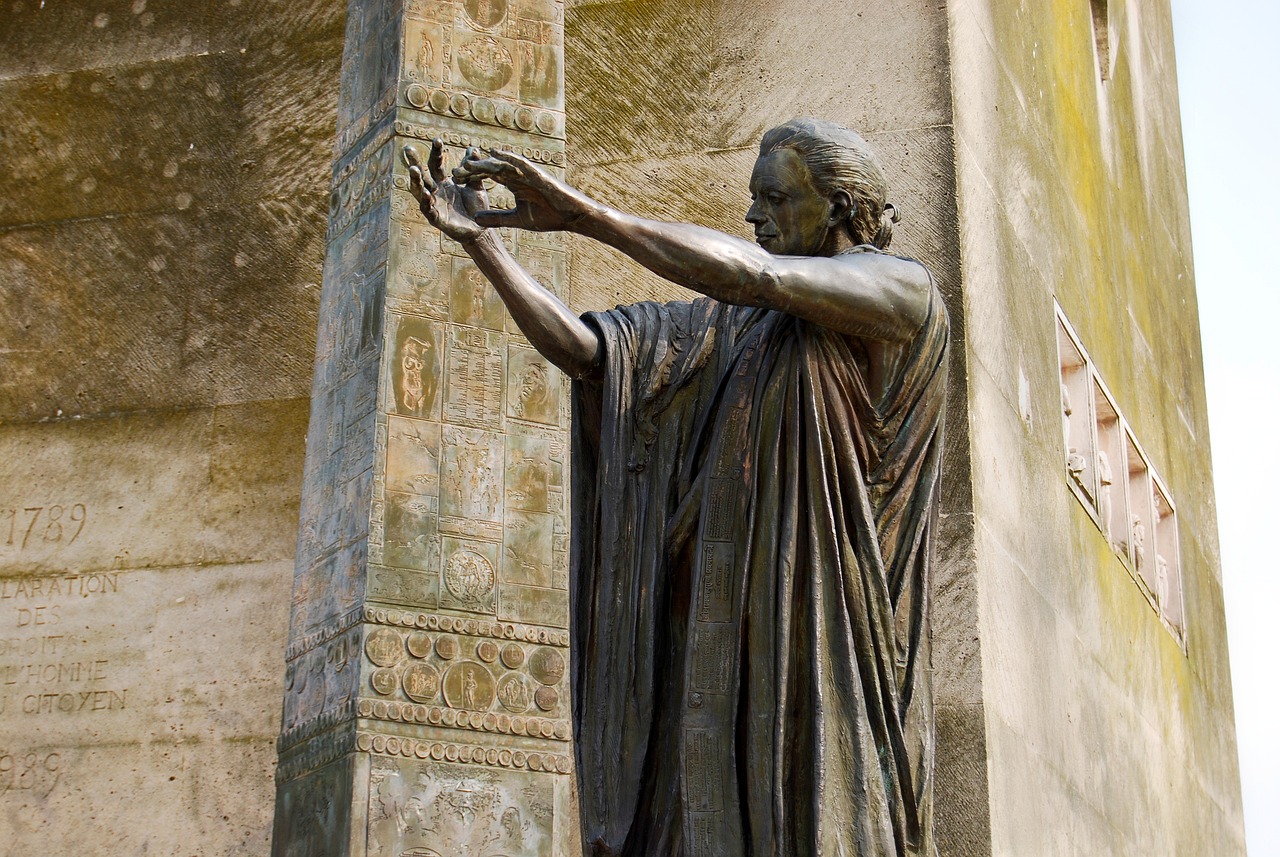
Scientific Contributions
Aristotle's contributions to various scientific fields are nothing short of revolutionary. His approach to science was not merely theoretical; it was deeply rooted in observation and empirical evidence. By meticulously studying the natural world, he laid the groundwork for future scientific methodologies that we still rely on today. One of the most remarkable aspects of Aristotle's work is how he bridged the gap between philosophy and science, demonstrating that understanding the world requires both rigorous analysis and thoughtful reflection.
In the realm of biology, Aristotle's passion for the natural world led him to conduct extensive observations of animals and plants. He is often credited with being one of the first to classify living organisms systematically. His classification system, which included categories such as plants, animals, and minerals, was groundbreaking for its time. Aristotle's keen eye for detail allowed him to document various species, their habits, and their environments, creating a foundation for future biologists. His work, History of Animals, is a testament to his dedication to empirical research, showcasing his ability to blend observation with philosophical inquiry.
When it comes to physics, Aristotle's theories on motion and force were influential, shaping scientific thought for centuries. His ideas about the nature of the universe were based on the concept of natural motion and violent motion, which he believed were governed by different principles. Although some of his theories were later challenged by figures like Galileo and Newton, Aristotle's work on the subject served as a crucial stepping stone for future scientists. He proposed that everything in the universe has a purpose or end goal, which he referred to as telos. This notion of purpose in nature influenced not only physics but also the broader field of natural philosophy.
Aristotle's influence extended to astronomy as well. While his geocentric model of the universe was eventually supplanted by the heliocentric model proposed by Copernicus, it is essential to recognize the significance of his contributions. He theorized about the motion of celestial bodies and their relationship to the Earth, providing a framework that would be built upon for generations. His works in astronomy, like On the Heavens, explored the nature of the cosmos, emphasizing the importance of observation and logical reasoning in understanding the universe.
In summary, Aristotle's scientific contributions were characterized by a remarkable blend of observation, classification, and philosophical inquiry. His legacy in biology, physics, and astronomy not only paved the way for future scientists but also established a systematic approach to understanding the natural world. Today, we continue to build on the foundations he laid, proving that his impact on science is as relevant now as it was over two millennia ago.
- What were Aristotle's main contributions to biology?
Aristotle made significant advancements in biology through his meticulous observations and classifications of living organisms, laying the groundwork for future biological sciences. - How did Aristotle influence physics?
His theories on motion and force influenced scientific thought for centuries, even though some of his ideas were later challenged. - Did Aristotle contribute to astronomy?
Yes, Aristotle theorized about celestial bodies and their movements, providing a framework that would influence future astronomical models.

Biological Studies
Aristotle's contributions to the field of biology were nothing short of revolutionary. His meticulous observations and detailed descriptions of various living organisms laid the groundwork for the biological sciences as we know them today. Unlike many of his contemporaries, Aristotle didn't just rely on philosophical speculation; he engaged directly with the natural world. This hands-on approach allowed him to classify animals and plants in a way that was unprecedented at the time.
One of Aristotle's most significant achievements in biology was his method of empirical observation. He believed that understanding the natural world required careful study and documentation of what he observed. For instance, he spent considerable time studying marine life, documenting various species of fish and other sea creatures. His work, History of Animals, is a testament to his dedication to the field, as it provides an extensive account of over five hundred different species, detailing their anatomy, behavior, and habitats.
Aristotle’s classification system was groundbreaking. He introduced a hierarchical approach to categorizing organisms, which included the following major groups:
- Animals: Divided into those with blood (vertebrates) and those without (invertebrates).
- Plants: Classified based on their characteristics and habitats.
This classification system not only reflected the diversity of life but also emphasized the importance of functional relationships among organisms. Aristotle believed that understanding these relationships was essential for grasping the complexities of the natural world. His emphasis on observation and classification influenced future scientists, who built upon his foundational work.
Moreover, Aristotle's biological studies were not limited to taxonomy; he also explored the principles of reproduction, growth, and development. He proposed theories about how organisms come into being, which included the idea that all living things had a purpose or telos. This notion of purposefulness in nature was a radical departure from the more mechanistic views of life that would come later.
In essence, Aristotle's biological studies represented a significant leap towards a more systematic and scientific understanding of life. His approach combined observation with philosophical inquiry, making him one of the first to apply a scientific method to the study of living organisms. This legacy continues to resonate in modern biology, where empirical research and classification remain cornerstones of the discipline.
- What was Aristotle's contribution to biology?
Aristotle contributed significantly by classifying living organisms and emphasizing empirical observation, laying the groundwork for future biological sciences. - How did Aristotle classify animals?
He classified animals based on whether they had blood or not, dividing them into vertebrates and invertebrates. - What is the significance of Aristotle's work in biology today?
His methods and ideas continue to influence biological research and classification systems used in modern science.
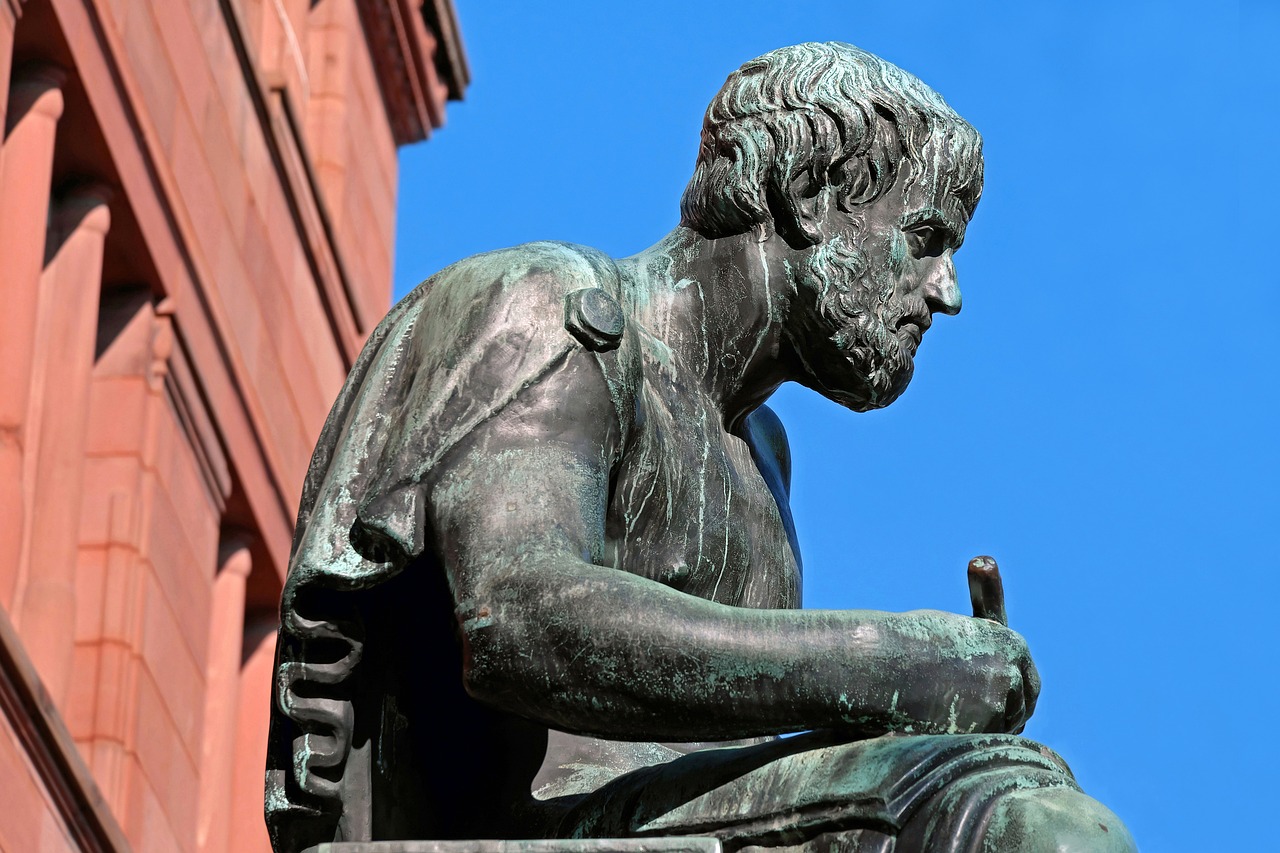
Physics and Natural Philosophy
Aristotle's contributions to physics and natural philosophy were groundbreaking, laying the foundation for centuries of scientific inquiry. Unlike his predecessors, who often relied on abstract reasoning, Aristotle emphasized the importance of empirical observation and practical experimentation. He believed that understanding the natural world required a thorough examination of the phenomena around us, which was a radical departure from the philosophical norms of his time.
One of Aristotle's most influential ideas was his theory of motion. He proposed that all motion is the result of a force acting on an object, a concept that was pivotal in shaping the way we understand dynamics today. Aristotle categorized motion into two types: natural motion, which occurs without external force (like an apple falling from a tree), and violent motion, which requires a force (like pushing a cart). This classification was essential in establishing a framework for later scientists to build upon.
Moreover, Aristotle introduced the idea of the four elements—earth, water, air, and fire—as the fundamental building blocks of nature. He argued that everything in the universe is composed of these elements, and changes in matter are the result of transformations among them. Although modern science has since disproven this notion, it was a significant step in the early understanding of matter and its properties.
| Element | Characteristics | Natural Motion |
|---|---|---|
| Earth | Cold, dry, heavy | Moves downward |
| Water | Cold, wet | Moves downward |
| Air | Hot, wet | Moves upward |
| Fire | Hot, dry | Moves upward |
Aristotle also explored the concept of causality in the natural world. He introduced the idea of the four causes: material, formal, efficient, and final. This framework was revolutionary, as it allowed for a more comprehensive understanding of why things happen in nature. For example, when considering a statue, the material cause would be the marble, the formal cause would be the design of the statue, the efficient cause would be the sculptor, and the final cause would be the purpose of the statue. This holistic approach to causation has had a lasting impact on both philosophy and science.
While many of Aristotle's ideas in physics were later challenged and refined by figures like Galileo and Newton, his emphasis on observation and classification set a precedent that is still relevant in scientific methodologies today. His work encouraged future generations to question, observe, and explore the natural world, ultimately leading to the development of modern science.
- What was Aristotle's contribution to physics?
Aristotle's work laid the foundation for understanding motion and causality, introducing concepts such as natural and violent motion, and the four causes. - How did Aristotle influence natural philosophy?
His emphasis on empirical observation and classification encouraged future scientists to explore and understand the natural world systematically. - What are the four elements according to Aristotle?
Aristotle proposed that everything is made up of earth, water, air, and fire, each with distinct characteristics and natural motions.
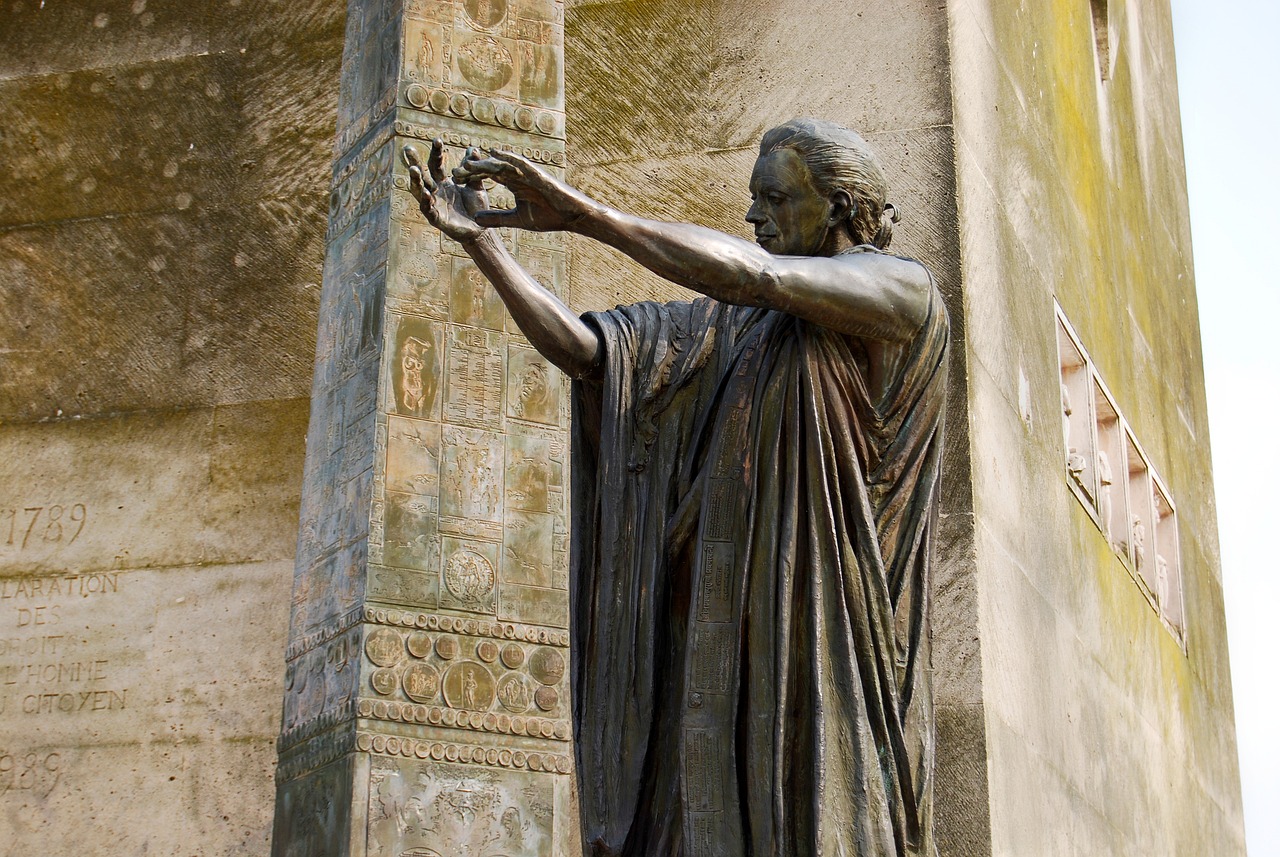
Legacy and Influence
Aristotle's legacy is nothing short of monumental, echoing through the corridors of time and influencing countless fields. His works have not only shaped the landscape of philosophy but have also permeated the realms of science, literature, and politics. Imagine a vast tree, its roots deep in the soil of ancient Greece, with branches extending into various disciplines, each bearing fruit that continues to nourish contemporary thought.
One of the most significant aspects of Aristotle's influence is his method of inquiry, which emphasized empirical observation and systematic classification. This approach laid the groundwork for modern scientific methods, encouraging scholars to seek knowledge through observation and experimentation. For instance, his biological studies, where he meticulously categorized animals and plants, set a precedent for future biologists and naturalists. Even today, his classification system is a fundamental part of the biological sciences.
Moreover, Aristotle's contributions to ethics and political theory are still relevant. His concept of virtue as a mean between extremes resonates with modern discussions about morality and ethical behavior. In his work, the Nicomachean Ethics, he argues that true happiness is achieved through virtuous living, a notion that continues to be a guiding principle in moral philosophy.
In literature, Aristotle's Poetics has had a profound impact on storytelling and dramatic theory. His analysis of tragedy and the elements that make a story compelling has shaped the narrative structures we see in literature and film today. Writers and filmmakers often refer to Aristotle's ideas when crafting their narratives, proving that his insights are timeless.
Aristotle's influence extends into politics as well. His ideas about governance, citizenship, and the role of the state laid the foundation for modern political philosophy. He advocated for a balanced government that incorporates elements of democracy, oligarchy, and monarchy, which continues to inform contemporary political systems around the world.
To illustrate the breadth of Aristotle's influence, consider the following table that highlights key areas of his impact:
| Field | Contributions | Modern Relevance |
|---|---|---|
| Philosophy | Metaphysics, Ethics, Political Theory | Foundation for Western philosophy; ethical frameworks |
| Science | Biology, Physics, Natural Sciences | Empirical methods, classification systems |
| Literature | Poetics, Dramatic Theory | Influences narrative structures in storytelling |
| Politics | Governance, Citizenship | Frameworks for modern political systems |
In conclusion, the legacy of Aristotle is a tapestry woven with threads of insight and inquiry that continue to inspire and challenge thinkers across generations. His ability to blend rigorous observation with profound philosophical inquiry has cemented his place as one of the most influential figures in human history. Each time we engage with questions about existence, ethics, or the natural world, we are, in some way, engaging with Aristotle's legacy.
- What are some of Aristotle's most important works? Aristotle wrote extensively, with notable works including Metaphysics, Nicomachean Ethics, and Poetics.
- How did Aristotle influence modern science? His emphasis on empirical observation and classification laid the groundwork for the scientific method.
- What is Aristotle's view on ethics? He believed that virtue is a mean between extremes and that moral character is essential for achieving happiness.
- In what ways does Aristotle's political theory impact modern governance? His ideas about balanced government and citizenship continue to influence contemporary political systems.
Frequently Asked Questions
- What were Aristotle's major contributions to science?
Aristotle made significant contributions to various scientific fields, including biology, physics, and astronomy. His meticulous observations and classifications of living organisms laid the groundwork for biology, while his theories on motion and the nature of the universe influenced physics for centuries. He is often regarded as a pioneer of empirical observation, which is crucial in scientific methodologies today.
- How did Aristotle's philosophy influence Western thought?
Aristotle's philosophy established a systematic approach to understanding the world, covering topics like metaphysics, ethics, and politics. His ideas about substance, essence, and causality shaped the foundation of Western philosophy and inspired countless thinkers throughout history. His work continues to be a cornerstone in philosophical discourse, influencing both modern philosophy and various academic disciplines.
- What is the significance of Aristotle's 'Nicomachean Ethics'?
'Nicomachean Ethics' is one of Aristotle's most important works, focusing on the concept of virtue as a mean between extremes. It emphasizes the importance of character and moral reasoning in achieving a fulfilling life. This text has had a lasting impact on ethical theory, providing a framework for understanding morality and ethical behavior that is still relevant today.
- What is Aristotle's view on causality?
Aristotle introduced the concept of the four causes: material, formal, efficient, and final. This comprehensive understanding of causality explains how and why things change in the world. His approach to causation remains significant in both philosophy and science, influencing how we think about events and their underlying reasons.
- How did Aristotle's work in biology differ from previous thinkers?
Aristotle's work in biology was groundbreaking because of his emphasis on observation and classification. Unlike previous thinkers who relied more on speculation, Aristotle meticulously studied animals and plants, categorizing them based on their characteristics. This empirical approach set a precedent for future biological sciences and established a more scientific method of inquiry.
- What legacy did Aristotle leave behind?
Aristotle's legacy is profound and enduring, evident in various fields such as philosophy, science, literature, and politics. His works continue to be studied and revered, showcasing his impact on Western intellectual history. The principles he established in ethics, metaphysics, and natural sciences are still relevant and influential in contemporary thought.







